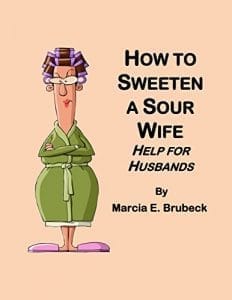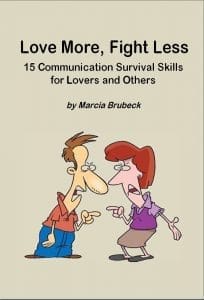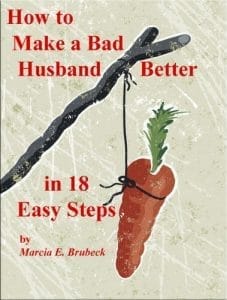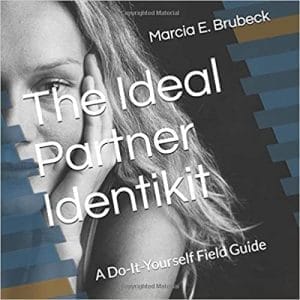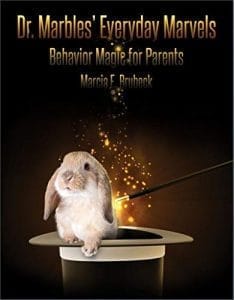
Do You Belong Here?
Friends may be the family we choose, but they can unfriend us and not just on Facebook. Once they do, we feel excluded, rejected. Family, on the other hand, stays the same no matter what even if some relatives aren’t on speaking terms.
The mere fact of blood ties is important, however, for our sense of identity. Why should it matter?
We have a deep-seated need to feel like participants in some community. This craving is counterbalanced by an equally deep-seated desire for autonomy. Most of us are less comfortable acknowledging our dependency than our sense of independence.
As adults we expect to take responsibility for ourselves. We may feel considerably less certain that other people will help if need be.
Most of us admire the Lone Ranger’s self-sufficiency. Still, his loneliness is a condition that flesh-and-blood humans generally are no more equipped to tolerate than rabbits are. Isolation produces stress that shortens lives. We are gregarious by nature.
It would seem easy to find a clan to affiliate with, but more is required than just the chance to opt in. We must feel welcome, even wanted and needed.
In Europe, countries are struggling with the reality of interdependence. Neighbors cannot merely share a currency but must support each other through hard times. The message is the same in America when the haves decline to accommodate the have-lesses.
The Third World grapples with the awful reality that it will probably bear a disproportionate share of the costs of global warming, a problem that the developing nations did little to create. On any continent, what will be the consequences, locally and globally, if some people feel left out?
In some ways the problem of belonging is a matter of roots. Think of your relatives: parents, siblings, extended family. How strong are your connections with these people? Even if you are seldom in contact, the knowledge of who and where they are—and their culture—informs your sense of yourself.
You can trace your family tree back for several generations. You know what some ancestors did for a living and where they came from. You may have some books, jewelry, furniture, and photos to remind you that you are their successor in interest.
Race and ethnicity also feed your sense of yourself, especially if your family’s native tongue was not that of the country you inhabit. An older relative may remember learning a language fresh off the boat, being teased about clothes worn to school, or enduring racial profiling. Memories of shared suffering strengthen ties within groups perhaps more than common traditions and religious beliefs do.
Your neighborhood and your town also define communities. Do you feel like a newcomer here, or has your family lived on this street for generations? Did you go to school here? What binds you to this place? If you are American, how about the state you live in? Are you a proud New Englander or Midwesterner?
What does it mean to you to be American? Do you think instantly of a nation defined by immigrants? By date of arrival on American shores? When you think of serving your country, do you mean military service or something broader? As I write, regional feelings about the Confederate flag are highlighting long-standing cultural differences in the United States.
The mental exercise I have suggested should make you more aware of your built-in GPS. If it seems foolish or pointless to recall your roots, consider the plight of children who have lost their families.
Although adopted children are often told that they were chosen, they usually struggle to feel that they belong where they have been placed. Having suffered one of life’s biggest losses early on, these children may internalize a belief that if they had been good enough, their parents would never have abandoned them. Feelings of unworthiness or inadequacy can make it hard for them to forge healthy relationships in adulthood.
Children placed in foster care when their parents were accused of abuse or neglect suffer a similar plight. These children go through distinct stages. Initially they wait for familiar faces to arrive. They feel hopeful, expecting to be rescued. They enter into a period of intense grief as they realize that they have been abandoned.
Eventually the grief hardens into anger, even rage—how could you do this to me?—which often erupts after visits with kin, especially if some other offspring remain in the natal parents’ home. Foster parents speak feelingly of the trouble they have managing children in the wake of such visits.
The loss of family undermines identity. Child welfare workers try to keep children in foster care connected with their relatives. Why sever ties unnecessarily? None of us needs to lose more people from our lives. The bonds keep us all feeling that we belong somewhere.
The web of our relationships sustains us. It reminds us that others share our ways of thinking, our gene pool, and at least some of our outlook and values. It links the past, the present, and the future.
When we see others as being like us, we feel stronger. Ideally, of course, the network of family and friends helps us feel someone has our back. There is someone who will listen uncritically, nonjudgmentally, when we are in pain.
Someone will rejoice in our good fortune and commiserate when things don’t go so well. Someone will extend a helping hand if we need one, with the tacit understanding that we will return the favor.
When no one has your back, of course, you feel like the child in foster care. You are alone and angry. Sooner or later you may lash out to make yourself heard. People who commit murder and other atrocities believe they have no alternative. To stay their hands we must show them other possibilities. Each of us is capable of terrible things if only we are in enough pain.
Clearly we each belong to a community that is just as wide and deep as we believe it to be. It may include only people who share our religious convictions, have attended the same prestigious university, or live in our gated communities. Alternatively, it can include everyone, the homeless as well as the affluent, the sick as well as the healthy, the immigrant as well as the native born, the old as well as the young.
Ultimately, as technology shortens the distance separating continents, more people will reach out to each other. In time the community with which we identify could encompass everyone on earth. Surely this is what the microlending movement is all about. And it is funded by ordinary people, not by international financiers.
Since public institutions move slowly and ponderously, being creatures of society’s more affluent members, the task of community building will likely fall to ordinary people with little political and financial clout. Somehow we must learn to be there for each other, to respect the desire for autonomy while affirming the need for community. No one wants to feel left out.
